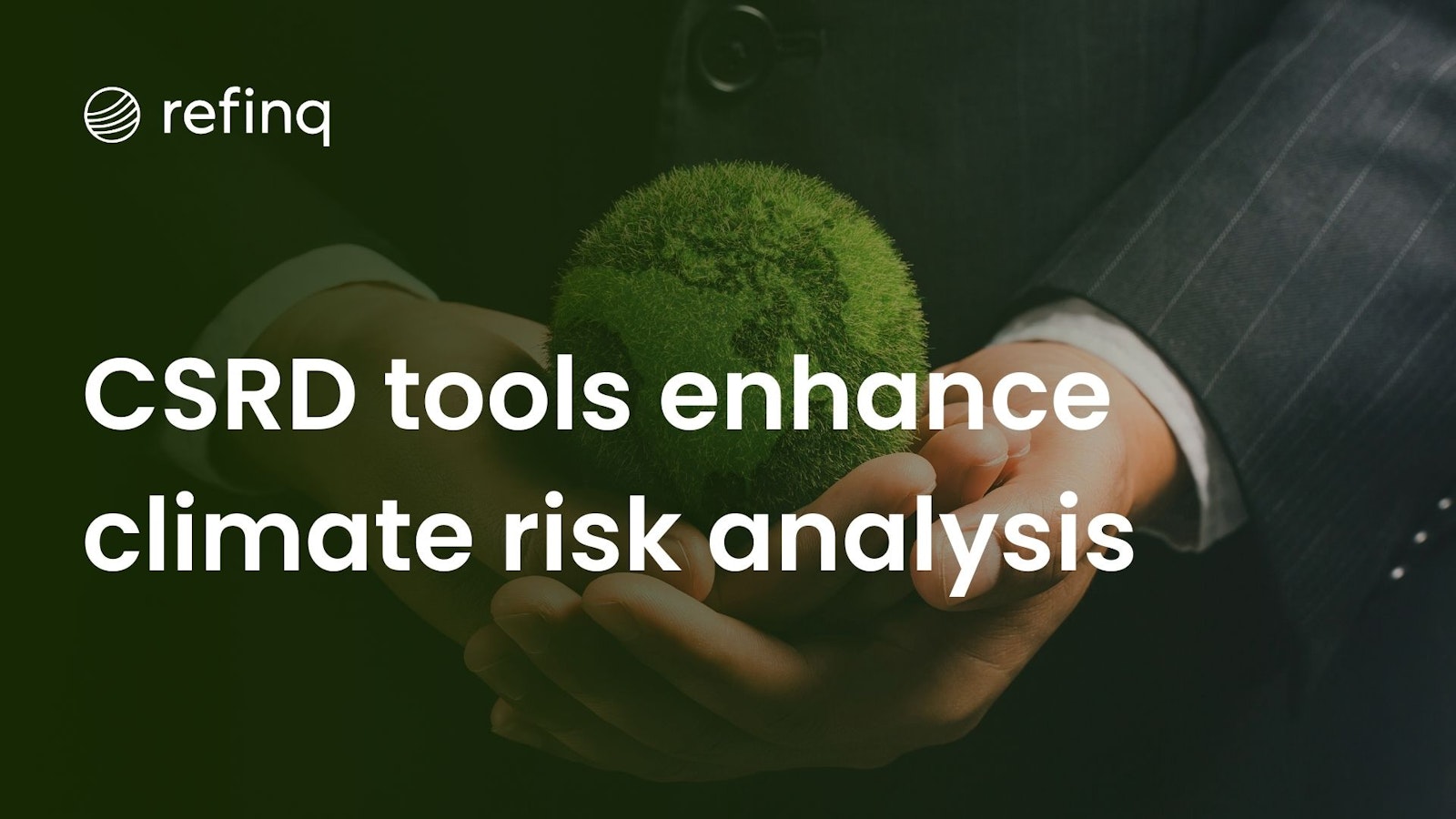

Climate risk analysis has become an essential component of corporate sustainability strategies, especially as businesses strive to align with evolving regulatory frameworks. The Corporate Sustainability Reporting Directive (CSRD) mandates companies to assess and disclose their climate-related risks, ensuring transparency and resilience in the face of environmental challenges. Organizations that fail to adopt advanced climate risk analysis tools risk financial instability, regulatory non-compliance, and reputational damage. To navigate these complexities, businesses can turn to specialized platforms like refinq, which provides comprehensive climate risk assessments through real-time data processing and predictive analytics.
The need for robust climate risk analysis tools is growing as companies look for ways to assess physical and transitional risks while complying with CSRD reporting standards. Advanced solutions, such as Sust Global’s climate risk assessment methodologies, offer financial impact metrics that align with CSRD guidelines. By integrating these insights with platforms like refinq, businesses can proactively mitigate risks while ensuring compliance with sustainability reporting frameworks.
The CSRD, implemented by the European Union, aims to improve corporate sustainability reporting by enforcing stringent guidelines for climate risk assessment. This directive requires companies to disclose their climate risks, financial impacts, and mitigation strategies, ensuring they align with international sustainability frameworks such as the Taskforce on Climate-related Financial Disclosures (TCFD) and European Sustainability Reporting Standards (ESRS).
Companies must now provide detailed quantitative and qualitative assessments of climate risks, covering:
For businesses looking to streamline their CSRD compliance, refinq offers due diligence tools that help companies assess climate vulnerabilities across different sectors. Additionally, BSR’s research highlights the importance of climate scenario analysis beyond mere regulatory compliance, emphasizing strategic long-term resilience planning.
One of the most critical components of climate risk analysis is scenario modeling, which helps organizations anticipate the potential impacts of different climate conditions. Climate scenario analysis is essential for identifying risks associated with temperature rise, extreme weather events, and economic shifts due to climate policies.
Platforms like refinq provide geospatial and machine-learning-based analysis, allowing businesses to forecast climate risks under different future climate scenarios. Additionally, research from Anthesis Group outlines how ESRS E1 compliance requires scenario analysis to evaluate the impact of climate change on corporate operations.
Carbon footprint analysis is a fundamental part of climate risk reporting under CSRD standards. Companies must measure their greenhouse gas (GHG) emissions, track their reduction progress, and compare their environmental impact with industry benchmarks.
refinq offers footprinting solutions that provide granular insights into carbon emissions, energy usage, and environmental impact, ensuring companies can track progress toward net-zero commitments. Businesses can also leverage Zurich’s climate risk management insights to integrate data-driven sustainability reporting into their risk management strategies.
As companies align with CSRD climate risk assessment, biodiversity loss is becoming a growing concern. Businesses need to evaluate how their operations impact ecosystems, water resources, and land use.
refinq provides biodiversity risk assessments, helping organizations understand the intersection between climate change and ecosystem degradation. Additionally, nature-positive investment strategies highlighted by Zurich’s climate-smart initiatives show how businesses can build sustainable models that balance economic growth and environmental conservation.
Financial institutions, investors, and asset managers must evaluate climate risks to assess the financial viability and sustainability of their investments. Under CSRD guidelines, banks, insurers, and funds must integrate climate risk exposure assessments into their ESG reporting.
refinq offers portfolio impact assessment tools that help financial institutions analyze climate-related risks within their investment portfolios. By using real-time climate risk assessments, investors can adjust their strategies to mitigate financial risks while maximizing sustainable investment opportunities. Additionally, technology-driven ESG management platforms like those featured in TechTarget’s sustainability solutions overview are shaping the future of climate risk tracking.
As businesses strive to meet CSRD climate risk assessment requirements, leveraging advanced climate risk analysis tools is essential. refinq plays a key role in helping companies manage climate risks by providing:
Through its advanced data integration capabilities, refinq ensures that businesses stay ahead of climate-related regulatory compliance while improving their resilience against environmental risks.
With the increasing emphasis on corporate sustainability reporting, companies must adopt advanced climate risk analysis tools to ensure CSRD compliance and build long-term resilience. By leveraging scenario modeling, footprinting, biodiversity risk assessments, and portfolio impact evaluations, businesses can develop data-driven climate risk management strategies.
refinq stands out as a comprehensive solution for companies navigating the complexities of climate risk reporting, offering advanced tools that enable businesses to assess, forecast, and mitigate environmental risks. As sustainability regulations continue to evolve, embracing data-driven insights and innovative climate risk tools will be essential for businesses to stay competitive and responsible in a climate-conscious world.